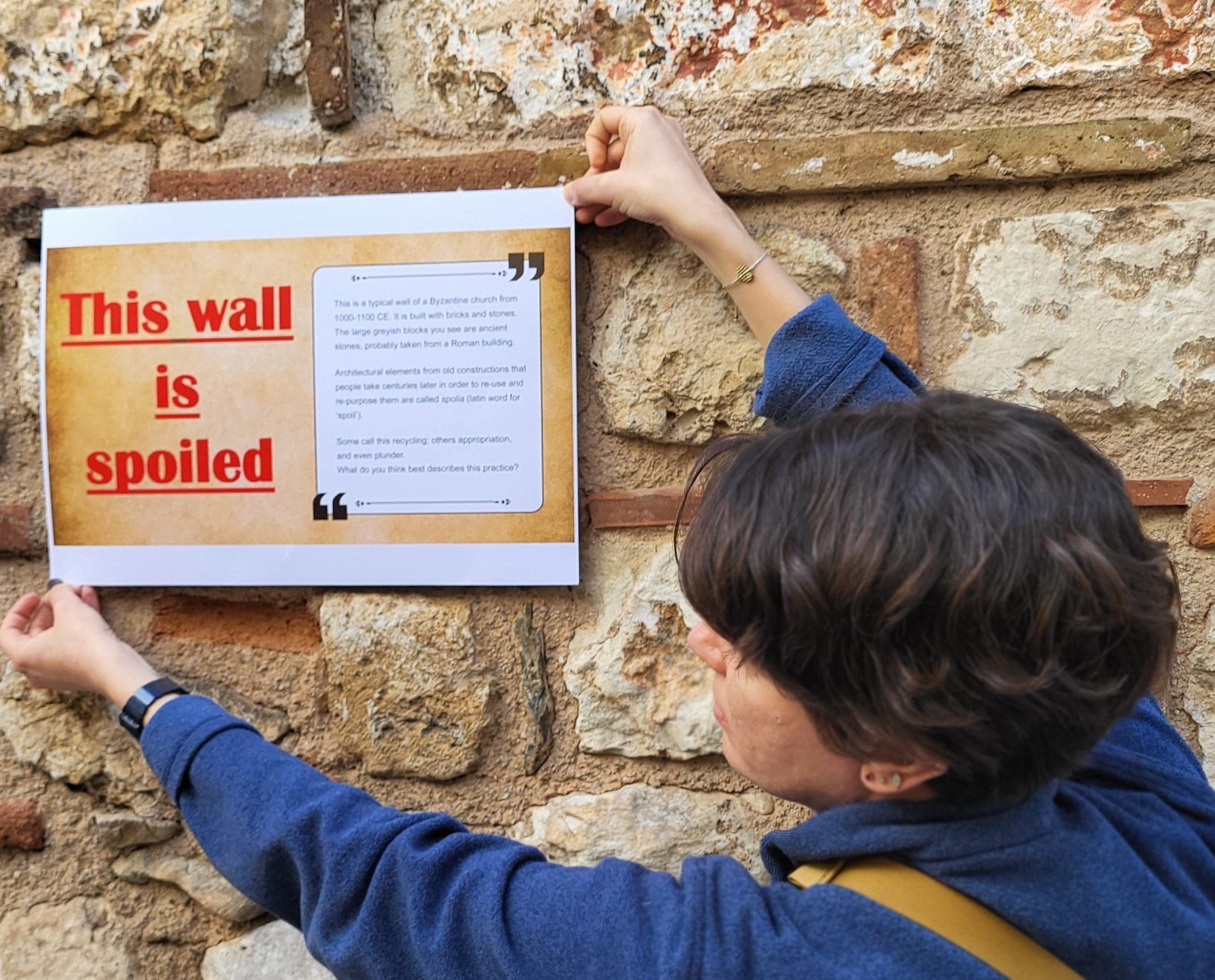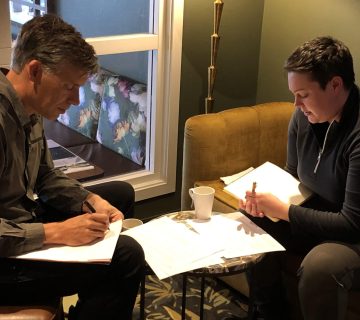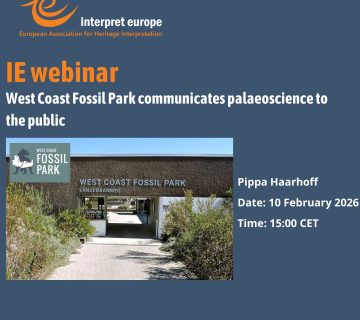A diverse group of women dive into interpretive writing, exploring heritage, creativity, and storytelling in the heart of Athens.
In March, an IE Certified Interpretive Writer (CIW) course was held in Athens, Greece. The weather was so sunny and warm, that we joked it was better suited for the summer newsletter, though perhaps it wasn’t just a joke!
Participants came from different parts of the country and we had the joy to welcome an international participant who travelled all the way from the Azores! Interestingly, the entire group was made up of women—a rare and energizing coincidence. Despite that common thread, our professional backgrounds varied widely and while some had attended other IE courses before, for others it was their first introduction to interpretive training.
The place that hosted us for those five days was in the very beating centre of the bustling capital, but since it was early for the heavy touristic season, we had the privilege of enjoying the interesting variety of the phenomena surrounding us without the crowds. The area, known for having the oldest street in Europe, offered the perfect setting for exploring the layers of human history and cultural phenomena.
The course started with us, presenting ourselves through an object that we brought with us. This was very helpful both as a means of self-presentation and as an introduction to one of the main purposes of this course, to initiate the crafting of a story. Throughout the week we discussed a lot about universal values, themes and topics about phenomena. We also engaged in a lot of exercises that required our inspiration and creativity for the delivery of stories.
One highlight was the visit to the Maria Callas Museum, where we examined the exhibition from an interpretive perspective and later designed audio guides based on selected themes. This hands-on task really brought the theoretical aspects to life.
While our days were mainly dedicated to team exercises, each day also included time for working on our final personal projects, that was creating an interpretive panel on a phenomenon of our choice. This task allowed us to apply all the new tools and knowledge in real time. On the final day, we presented our panels, peer-reviewed each other’s work, and offered constructive feedback. It was a moving and inspiring conclusion to a week full of learning and connection.
We closed the course with a shared dinner, reflecting on everything we had experienced. As we all agreed, in the end it wasn’t just about learning to write interpretively, but also about discovering our voice as storytellers of heritage.
Vicky is a museologist working at OikoM Ltd. She explores the world of heritage interpretation with a special interest in difficult heritage.
To cite this article: Antoniou, Vicky (2025) ‘Interpretive writing in Greece: it’s a girl’s job!‘ in Interpret Europe Newsletter 2-2025, pg.12
Available online: Newsletter summer 2025




